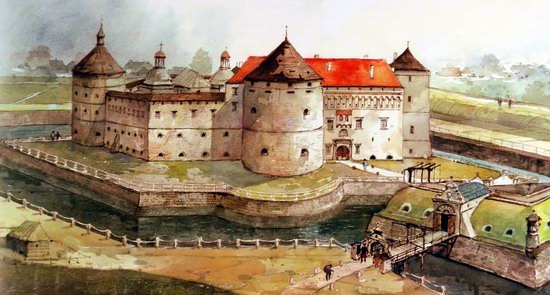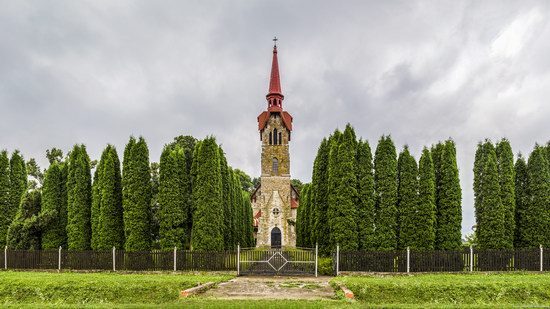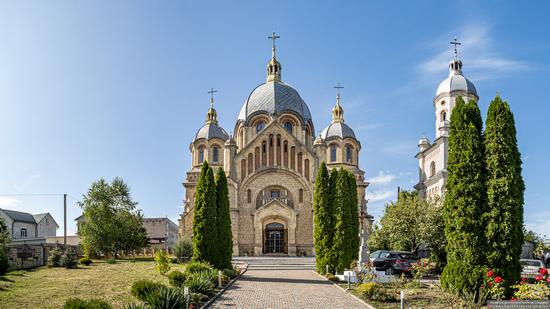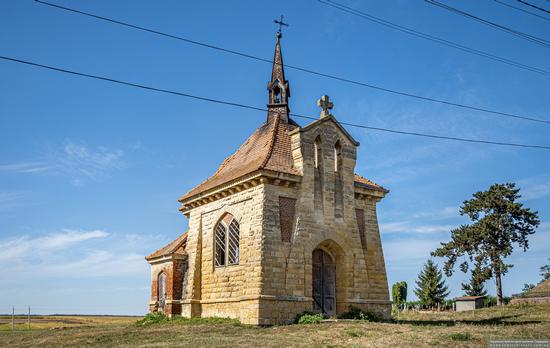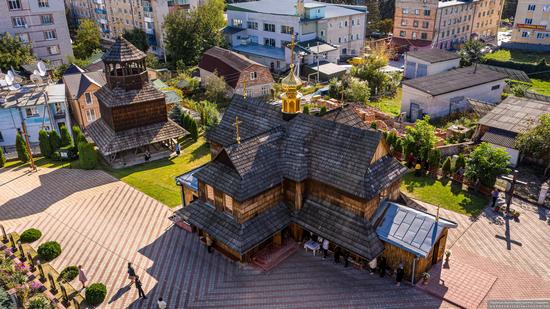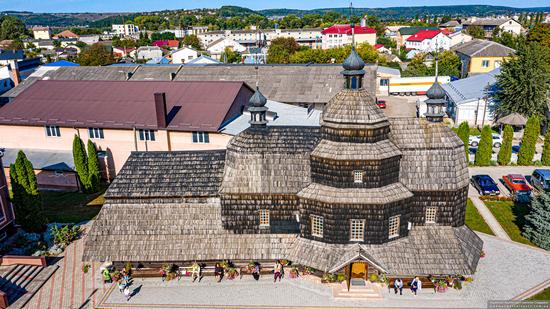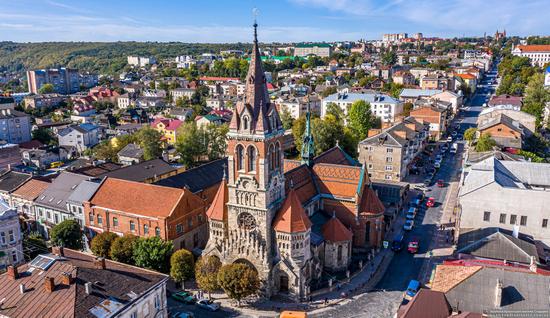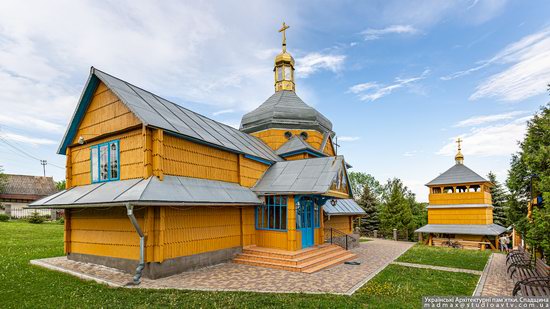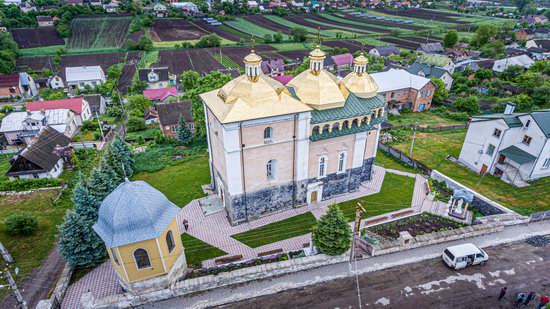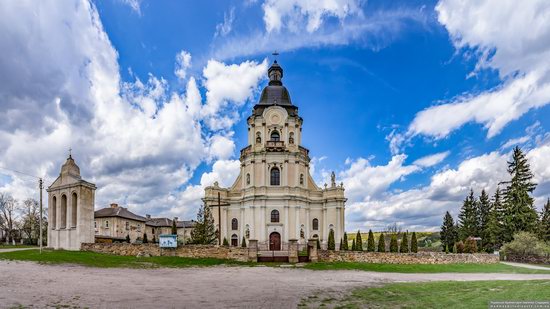TAG | Ternopil oblast
4
Castles of Ukraine in Watercolors by Polish Artist
No comments · Posted by Sergei Rzhevsky in Art, Regions, Travel
The following watercolors were included in the fourth album of the artist Zbigniew Szczepanek “Zamki na Kresach”. It shows the 59 most famous fortresses in Kresach (the Polish name of the territory of today’s Western Ukraine).
About 40% of the castles show the author’s reconstruction, the remaining 60% – their current state. The images of some fortifications have been reconstructed for the first time and can therefore be considered unique in a way.
Berezhany Castle in Berezhany, Ternopil Oblast.
Tags: fortress · Ivano-Frankivsk oblast · Khmelnitsky oblast · Rivne oblast · Ternopil oblast
11
The Roman-Catholic Church of St. Anthony of Padua in Losyach
No comments · Posted by Sergei Rzhevsky in Architecture, Regions, Religion, Travel
Losyach is a small village with a population of about 1,000 people located in the Chortkiv district of Ternopil Oblast. The Roman-Catholic church of St. Anthony of Padua, built at the end of the 19th – beginning of the 20th centuries, is the main attractions of the village.
This church amazes with its harmony. Built in the Romanesque neo-Gothic style, it has a high, pointed bell tower that dominates the surrounding landscape. The rough texture of the walls and side buttresses give it medieval features. Church of St. Anthony in Losyach on Google Maps. Photos by: Maxim Ritus.
Tags: church · Ternopil oblast
17
Church of St. Michael the Archangel in Tovste
No comments · Posted by Sergei Rzhevsky in Architecture, Regions
Tovste is an urban village with a population of about 3,200 people located in the south of Ternopil Oblast, about 100 km from Ternopil.
One of the architectural attractions of this place is the Church of St. Michael the Archangel (1912-1939) – a magnificent building with pronounced neo-Gothic elements belonging to the local Greek Catholic community. Tovste on Google Maps. Photos by: Maxim Ritus.
Tags: church · Ternopil oblast
15
Roman Catholic Church-Chapel in Antoniv
No comments · Posted by Sergei Rzhevsky in Architecture, Regions
Antoniv is a village with a population of about 300 people located in Ternopil Oblast, about 100 km south of Ternopil. Here you can see the picturesque Roman Catholic church-chapel built in 1934-1936.
There is no more information about it. The services lasted only a few years. They were stopped during the Soviet era. Today, the church is abandoned and gradually falling apart. Antoniv on Google Maps. Photos by: Maxim Ritus.
Tags: church · Ternopil oblast
20
Church of the Assumption in Chortkiv
No comments · Posted by Sergei Rzhevsky in Architecture, Regions
The Church of the Assumption of the Blessed Virgin Mary (1581-1584), a picturesque wooden Orthodox church, is one of the architectural attractions of Chortkiv and the oldest church of this town.
The attacks of the Ottomans and Crimean Tatars in 1593, 1617, 1640 caused significant damage to the building. It acquired its present appearance in 1635. The church and bell tower were completely renovated in the 1990s. Church of the Assumption on Google Maps. Photos by: Maxim Ritus.
Tags: Ternopil oblast
9
Church of the Ascension in Chortkiv
No comments · Posted by Sergei Rzhevsky in Architecture, Regions
The Church of the Ascension of the Lord in the town of Chortkiv, located in the south of Ternopil Oblast, is a unique monument of Ukrainian wooden architecture. The covering of the church resembles scales, it is firmly attached to the building and reliably protects it from bad weather.
The original church, built in 1630, was named after St. Nicholas. After the Polish-Turkish war of 1672-1676, Chortkiv was occupied by Ottoman troops for 10 years. During the fighting, the church was completely destroyed. The Church of the Ascension on Google Maps. Photos by: Maxim Ritus.
Tags: church · Ternopil oblast
25
The Dominican Church in Chortkiv
1 Comment · Posted by Sergei Rzhevsky in Architecture, Regions
Chortkiv is a town with a population of about 29 thousand people located in the southern part of Ternopil Oblast in western Ukraine, about 75 km south of Ternopil.
A lot of architectural and historical sights have been preserved in the central part of this town. Architectural monuments are of historical value and the background buildings of the late 19th – early 20th centuries give Chortkiv a special flavor. Chortkiv on Google Maps. Photos by: Maxim Ritus.
Tags: church · Ternopil oblast
26
Wooden Church of the Transfiguration in Pidhaitsi
1 Comment · Posted by Sergei Rzhevsky in Architecture, Regions
Pidhaitsi is a town with a population of about 2,700 people located in Ternopil Oblast, about 65 km south-west of Ternopil.
This small provincial town has several interesting sights. One of them is the Transfiguration Church (1772) – a monument of wooden architecture of national importance. In the interior of this church, you can see preserved wall paintings of the 19th century. In 1893, a wooden bell tower was built next to it. Pidhaitsi on Google Maps. Photos by: Maxim Ritus.
Tags: church · Ternopil oblast
9
Fortified Assumption Church in Pidhaitsi
No comments · Posted by Sergei Rzhevsky in Architecture, Photos, Regions
Pidhaitsi, first mentioned in written sources in 1468, is a town with a population of about 2,700 people located in Ternopil Oblast, about 64 km south-west of Ternopil.
This town has preserved a number of interesting architectural monuments. One of them is the Assumption Church (1650-1653) – an architectural monument of national importance constructed in the Renaissance style in combination with Ukrainian church traditions. Pidhaitsi on Google Maps. Photos by: Maxim Ritus.
Tags: church · Ternopil oblast
3
Roman Catholic Church of the Holy Trinity in Mykulyntsi
No comments · Posted by Sergei Rzhevsky in Architecture, Regions, Travel
Mykulyntsi is an urban village with a population of about 3,600 people located in Ternopil Oblast, about 19 km south of Ternopil. First mentioned in chronicles in 1096, this is the oldest settlement in the region and one of the oldest settlements in Western Ukraine.
There are several architectural monuments in Mykulyntsi including the palace and the ruins of the castle. The Roman Catholic Church of the Holy Trinity (1761-1779) located here is a unique architectural monument of national importance. This is one of the largest Baroque churches in Ternopil Oblast. Mykulyntsi on Google Maps. Photos by: Maxim Ritus.
Tags: church · Ternopil oblast

